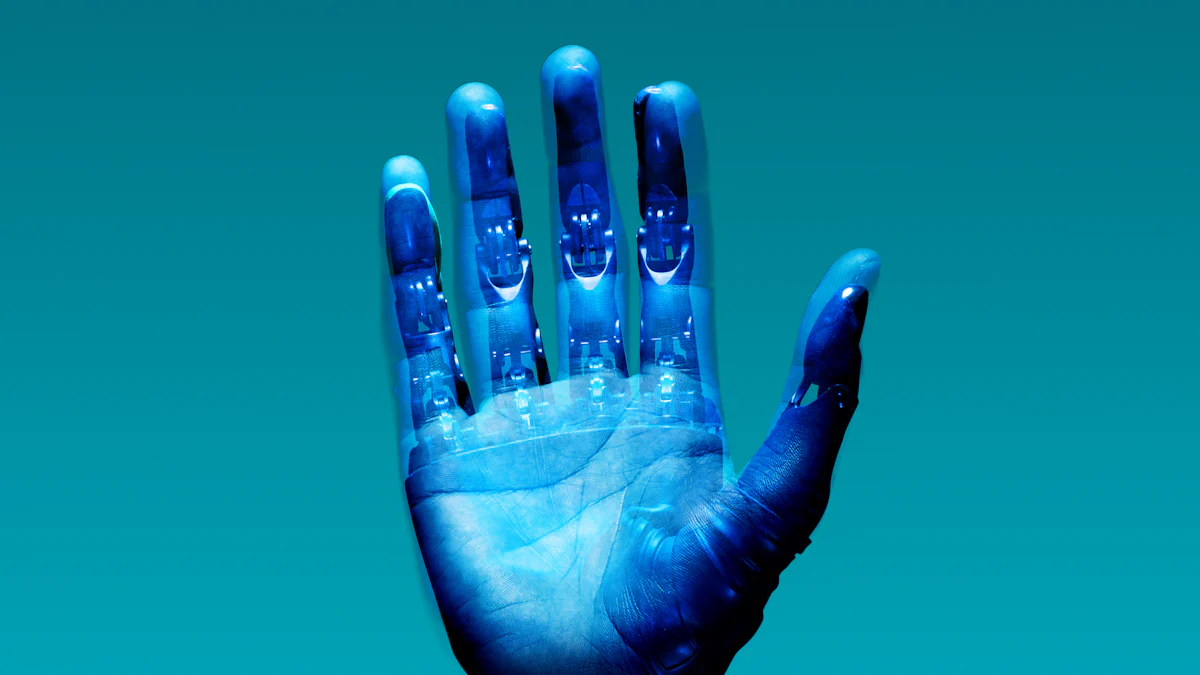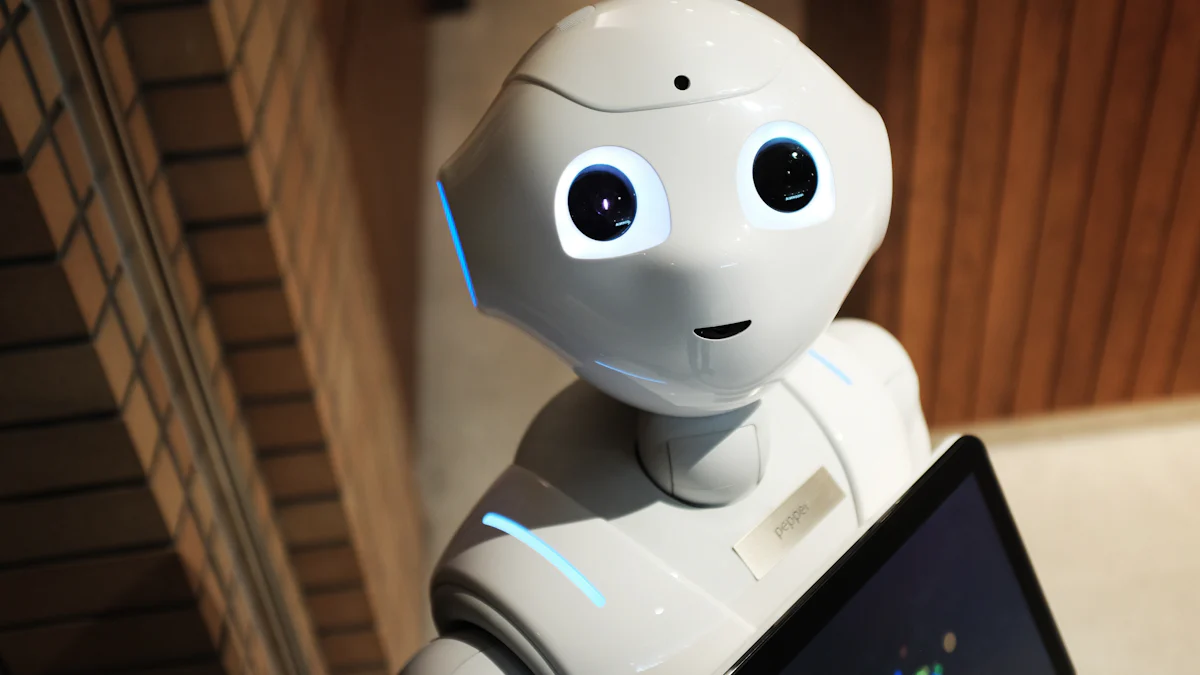Unleashing Generative AI for Healthcare Breakthroughs

Imagine a world where healthcare becomes more accessible and personalized. Generative AI is making this vision a reality. You can witness its transformative power as it democratizes access to high-quality medical services. This technology holds the potential to address disparities in healthcare delivery worldwide. By 2032, the global AI healthcare market is expected to reach $17.2 billion, showcasing its growing impact. Over 25% of scientists believe AI will play a crucial role in healthcare by 2033. Embrace this innovation, and you could be part of a future filled with groundbreaking healthcare advancements.
Understanding Generative AI
Definition and Key Concepts
What is Generative AI?
Generative AI represents a groundbreaking advancement in artificial intelligence. It empowers machines to create new content, such as images, text, or even music, by learning from existing data. You can think of it as a digital artist or composer, capable of producing original works. In healthcare, this technology holds immense promise. It can generate synthetic medical data, which helps researchers and practitioners develop innovative solutions without compromising patient privacy.
Core technologies and methodologies
Generative AI relies on several core technologies and methodologies. At its heart are neural networks, particularly Generative Adversarial Networks (GANs) and Variational Autoencoders (VAEs). These models learn patterns from vast datasets and use them to create new, realistic outputs. You might find GANs fascinating because they consist of two neural networks: a generator and a discriminator. The generator creates data, while the discriminator evaluates its authenticity. This dynamic interaction leads to continuous improvement and refinement of the generated content.
Historical Context and Evolution
Early developments in AI
Artificial intelligence has a rich history that dates back to the mid-20th century. Initially, AI focused on rule-based systems and symbolic reasoning. Researchers aimed to mimic human intelligence through logical operations. You can imagine the excitement when computers first solved complex mathematical problems or played chess. However, these early systems lacked the ability to learn from data, limiting their potential applications.
Transition to generative models
The transition to generative models marked a significant shift in AI's evolution. As computing power increased and data became more abundant, researchers explored new approaches. Generative AI emerged as a powerful tool, capable of learning from vast datasets and creating new content. In healthcare, this transition opened doors to unprecedented possibilities. You can now witness how generative models accelerate drug discovery, simulate clinical trials, and enhance medical imaging. These advancements not only improve healthcare efficiency but also hold the potential to revolutionize patient care.
Applications of Generative AI in Healthcare
Generative AI is revolutionizing healthcare by offering innovative solutions across various domains. You can witness its transformative impact in drug discovery, medical imaging, and patient care. Let's explore these applications and see how they are reshaping the healthcare landscape.
Drug Discovery and Development
Accelerating research processes
Generative AI accelerates drug discovery by simulating molecular interactions and generating new drug candidates. You can imagine the traditional drug development process, which often takes years and involves significant costs. With Generative AI, researchers can quickly identify promising compounds, reducing both time and expenses. This technology enables you to explore vast chemical spaces, leading to the discovery of novel drugs that might have remained hidden using conventional methods.
Personalized medicine advancements
Generative AI empowers personalized medicine by tailoring treatments to individual patient characteristics. By analyzing patient data, you can develop personalized treatment plans that optimize outcomes and minimize adverse effects. This approach not only enhances patient care but also reduces healthcare costs. Imagine a world where each patient receives a treatment plan specifically designed for their unique needs, leading to better health outcomes and improved quality of life.
Medical Imaging and Diagnostics
Enhancing image analysis
In medical imaging, Generative AI enhances image analysis by providing more accurate and detailed insights. You can think of it as having an expert radiologist at your fingertips, capable of interpreting complex images with precision. This technology improves the detection of abnormalities, allowing for earlier diagnosis and intervention. By integrating Generative AI into imaging workflows, healthcare professionals can make more informed decisions, ultimately benefiting patients.
Improving diagnostic accuracy
Generative AI significantly improves diagnostic accuracy by analyzing vast amounts of medical data. You can rely on its ability to identify patterns and anomalies that might be missed by human eyes. This leads to more accurate diagnoses and better treatment outcomes. By incorporating Generative AI into diagnostic processes, you can ensure that patients receive timely and precise care, reducing the risk of misdiagnosis and improving overall healthcare quality.
Patient Care and Management
AI-driven treatment plans
Generative AI plays a crucial role in developing AI-driven treatment plans. By leveraging patient data, you can create personalized plans that enhance patient outcomes. This approach not only optimizes treatment results but also minimizes negative impacts. Imagine having a virtual assistant that continuously learns from your health data, providing you with the best possible care tailored to your needs.
Virtual health assistants
Virtual health assistants powered by Generative AI offer personalized support and guidance to patients. You can interact with these assistants to receive timely health advice, medication reminders, and lifestyle recommendations. This technology empowers you to take control of your health, making informed decisions and improving your well-being. By integrating virtual health assistants into patient care, healthcare providers can offer continuous support, enhancing the patient experience and promoting better health outcomes.
Benefits and Challenges
Generative AI is transforming healthcare, offering numerous advantages while presenting certain challenges. Understanding these aspects can help you navigate this evolving landscape effectively.
Advantages of Generative AI in Healthcare
Increased efficiency and accuracy
Generative AI enhances efficiency and accuracy in healthcare. You can witness its power as it processes vast amounts of data quickly, providing insights that improve patient care. This technology helps automate routine tasks, freeing up healthcare professionals to focus on more critical aspects of patient care. Imagine a system that analyzes medical images with precision, identifying potential issues faster than traditional methods. This capability not only speeds up diagnosis but also ensures that you receive the most accurate information possible.
Cost reduction and resource optimization
Generative AI significantly reduces costs and optimizes resources in healthcare. By automating processes and improving decision-making, you can see a decrease in operational expenses. This technology enables healthcare providers to allocate resources more effectively, ensuring that you receive timely and efficient care. For instance, AI-driven drug discovery can cut down the time and cost involved in developing new treatments, making healthcare more affordable and accessible to everyone.
Ethical and Practical Challenges
Data privacy concerns
While Generative AI offers remarkable benefits, it also raises data privacy concerns. You must consider how your personal health information is used and protected. Ensuring data security is crucial to maintaining trust in AI systems. Safeguards are necessary to prevent unauthorized access and misuse of sensitive information. As AI continues to evolve, addressing these concerns becomes essential to ensure ethical deployment and protect your privacy.
Integration with existing systems
Integrating Generative AI with existing healthcare systems presents practical challenges. You may encounter difficulties in merging new technologies with established workflows. This integration requires careful planning and collaboration among stakeholders to ensure seamless operation. Overcoming these challenges is vital for maximizing the potential of AI in healthcare. By working together, healthcare providers can create a cohesive system that enhances patient care and improves overall efficiency.
Generative AI holds the promise of revolutionizing healthcare, offering increased efficiency, accuracy, and cost savings. However, addressing ethical and practical challenges is essential to fully realize its potential. By embracing this technology and overcoming obstacles, you can be part of a future where healthcare is more accessible, personalized, and effective.
Future Prospects and Innovations

Generative AI is not just a tool for today; it is a beacon for the future of healthcare. As you explore its potential, you will find emerging trends that promise to reshape how we understand and manage health.
Emerging Trends in Generative AI
AI in Precision Medicine
Imagine a world where treatments are as unique as fingerprints. Generative AI is paving the way for precision medicine, allowing you to receive care tailored specifically to your genetic makeup and lifestyle. By analyzing vast datasets, AI can identify patterns and predict how different individuals will respond to various treatments. This capability means you could benefit from therapies that are more effective and have fewer side effects. The future of healthcare is personal, and Generative AI is at the forefront of this transformation.
Real-time Health Monitoring
Generative AI is revolutionizing real-time health monitoring. Picture having a virtual health assistant that continuously tracks your vital signs and provides instant feedback. This technology enables you to stay informed about your health status, allowing for early detection of potential issues. With AI-driven insights, you can make proactive decisions about your well-being. Real-time monitoring not only enhances individual health management but also supports healthcare providers in delivering timely interventions.
Long-term Impact on Healthcare Systems
Transforming Healthcare Delivery
Generative AI is set to transform healthcare delivery on a global scale. By streamlining processes and enhancing diagnostic accuracy, AI empowers healthcare professionals to provide better care. You will experience shorter wait times and more precise treatments. The integration of AI into healthcare systems means that resources are used more efficiently, leading to improved patient outcomes. As AI continues to evolve, it will redefine how healthcare services are delivered, making them more accessible and effective for everyone.
Potential for Global Health Improvements
The potential for global health improvements with Generative AI is immense. This technology can bridge gaps in healthcare access, especially in underserved regions. By offering remote diagnostic capabilities and personalized treatment plans, AI can extend quality care to those who need it most. You can envision a future where healthcare disparities are minimized, and everyone has the opportunity to lead a healthier life. Generative AI holds the promise of a healthier world, where innovation and compassion go hand in hand.
Generative AI is not just a technological advancement; it is a catalyst for change in healthcare. By embracing these emerging trends and understanding their long-term impact, you can be part of a future where healthcare is more personalized, efficient, and inclusive. The journey towards this future is exciting, and Generative AI is leading the way.
Generative AI is transforming healthcare by offering precise insights and automating tasks. You can witness its impact in personalized medicine and patient engagement. This technology is not just a tool; it's a catalyst for change. Imagine a future where healthcare is efficient and accessible to all. Ongoing research continues to unlock new possibilities, bridging gaps in care and improving outcomes. Embrace this innovation, and you become part of a movement that redefines health and well-being. The journey is just beginning, and the potential is limitless.
See Also
Exploring the Role of Generative AI in Scientific Research
Utilizing Generative AI for Content Promotion
The Future of Innovation and Creativity with Generative AI
Decoding the Generative AI Revolution: An Exploration of Creativity
